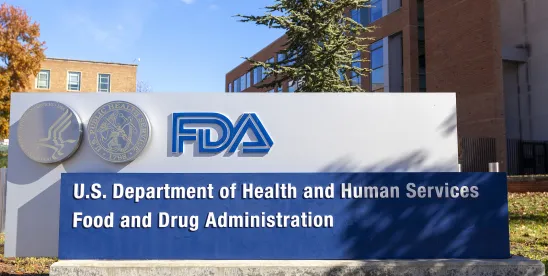THIS WEEK’S DOSE
- House Passes Reconciliation Package. The package now moves to the Senate, where substantive changes, including in healthcare, will likely be made.
- HHS Secretary Kennedy, FDA Commissioner Makary Testify at Senate Appropriations Committee. The officials testified in separate hearings on the Trump administration’s fiscal year 2026 skinny budget request.
- House Oversight Committee Examines IRA. The hearing focused on how the Inflation Reduction Act (IRA) has impacted healthcare innovation and prices.
- HHS Releases MAHA Commission Report. The report explores four factors contributing to high rates of childhood chronic diseases and recommends 10 research initiatives.
- HHS Begins Implementing Most-Favored-Nation EO. This quick action follows last week’s executive order (EO).
- CMS Announces Plans to Increase MA Auditing. The announcement echoes the administration’s focus on addressing waste, fraud, and abuse.
- Agencies Issue Guidance, RFIs on Healthcare Price Transparency. The actions across multiple federal agencies are in line with a February 2025 EO.
CONGRESS
House Passes Reconciliation Package. Here’s the play-by-play on how it happened. Regrouping after last week’s failure to advance the bill, the House Budget Committee advanced House Republicans’ reconciliation package late on May 18, 2025. The committee combined, without amending, the 11 committee prints that individual committees advanced over the past few weeks into a singular piece of legislation. The final vote to advance the package to the House Rules Committee was 17 – 16. All yes votes were Republicans, and all no votes were Democrats. Four hardline conservatives, Reps. Norman (R-SC), Roy (R-TX), Brecheen (R-OK), and Clyde (R-GA), who previously voted to stall the package in committee, voted present. Their present vote allowed the package to move to the Rules Committee while showing their continued strong reservations about the bill. They specifically urged House leaders to make changes that would expedite Medicaid work requirements, enact more cuts to Medicaid, and enact additional tax changes. Meanwhile, a key group of moderate Republicans from blue states continued to push for changes to the state and local tax (SALT) deduction provisions as a condition of their votes on the House floor.
The House Rules Committee met on May 21, 2025, in a marathon session to finalize the package and prepare it for a floor vote. While the Rules Committee was meeting, moderates and hardliners continued to urge Republican leadership to add provisions they support. Moderates reached a deal with Speaker Johnson to increase the SALT cap, prompting hardliners and members of the House Freedom Caucus to increase their push for more cuts to Medicaid. President Trump then met with the House Freedom Caucus and sent a statement of administration policy urging Republicans to support the package, stating that “failure to pass this bill would be the ultimate betrayal.”
Late on May 21, a manager’s amendment was released that included an increase in the SALT cap and modifications to other provisions, including health policies, to appease Freedom Caucus members. Changes included:
- Expediting the Medicaid work requirement implementation from 2029 to December 31, 2026.
- Expanding the ban on Medicaid funding for gender-affirming care from minors only to all Medicaid enrollees.
- Providing non-expansion states more flexibility to implement state directed payments up to 110% of the Medicare cap.
After debating most of the night, the House passed the One Big Beautiful Bill Act in the early morning of May 22, 2025, by a 215 – 214 vote. Reps. Massie (R-KY) and Davidson (R-OH) joined Democrats in voting no. Rep. Harris (R-MD), chair of the House Freedom Caucus, voted present. Two Republicans, Reps. Garbarino (R-NY) and Schweikert (R-AZ), did not vote.
Now that the House has met Speaker Johnson’s goal of passage by Memorial Day, the bill moves to the Senate. Speaker Johnson stated that he wants the bill on President Trump’s desk by July 4, 2025. However, he no longer controls the timeline – the Senate does. And, if reports to date are accurate, the Senate will make changes to key provisions.
On May 20, 2025, the Congressional Budget Office (CBO) released a preliminary cost estimate for the reconciliation package as it was reported from the House Budget Committee, including scores for each provision. The CBO analysis does not reflect changes made after the bill passed out of the Budget Committee, nor does it incorporate all of the interactive effects across titles. CBO estimates that:
- As a result of the Energy and Commerce Committee health provisions, 8.6 million individuals would become uninsured.
- As a result of the Ways and Means Committee health provisions, 2.1 million individuals would become uninsured.
At the request of Democrats, CBO also released a letter with a preliminary distributional analysis finding that the reconciliation package will cause a decrease in household resources for the lowest 10% of the income distribution and an increase in household resources for the highest 10% of the income distribution.
HHS Secretary Kennedy, FDA Commissioner Makary Testify at Senate Appropriations Committee. US Department of Health and Human Services (HHS) Secretary Kennedy continued his string of congressional appearances by testifying in front of the Senate Appropriations Labor, Health and Human Services, Education, and Related Agencies Subcommittee. Questioning focused on the FY 2026 skinny budget request and HHS research funding. Republicans emphasized the importance of maintaining clinical trials and ensuring transparency in research funding and discussed the need to improve care delivery in rural communities. Democrats meanwhile pressed Secretary Kennedy on when a full budget will be released and expressed concern over reductions in National Institutes of Health (NIH) funding and the implications for Alzheimer’s disease, cancer, and rare disease research.
Later in the week, US Food and Drug Administration (FDA) Commissioner Makary testified in front of the Senate Appropriations Agriculture, Rural Development, Food and Drug Administration, and Related Agencies Subcommittee. Republicans expressed concern about the FDA’s decision to loosen safety requirements for mifepristone, questioned Makary on the FDA’s artificial intelligence policies, and discussed the FDA’s work on improving infant safety. Appropriations Committee Chair Collins (R-ME) expressed concern about recent FDA staffing changes and the impact they could have on regulatory review. Democrats emphasized the importance of congressional collaboration and the expertise available within the committee to improve the FDA’s processes, particularly for diabetes treatments and COVID-19 boosters. Commissioner Makary emphasized that the goal of the FY 2026 budget is to rebuild the gold standard science at the FDA.
House Oversight Committee Examines IRA. The hearing was a joint Economic Growth, Energy Policy, and Regulatory Affairs Subcommittee and Health Care and Financial Services Subcommittee meeting. Republicans stated that the IRA has increased energy and healthcare costs for consumers and the federal government. Democrats focused on ongoing reconciliation efforts, stating their concern about any cuts to Medicaid and the expiration of the enhanced advanced premium tax credits. They stated that the IRA has improved healthcare access and created jobs.
ADMINISTRATION
HHS Releases MAHA Commission Report. A February 2025 EO created the President’s Make America Healthy Again (MAHA) Commission and directed the release of this report. The report explores four causes of increased rates of childhood chronic diseases: an increase in consumption of ultra-processed foods, chemicals in the environment, childhood behaviors in the digital age, and overmedicalization of children. The report does not include specific proposals and alludes to release of a strategy in August 2025. The report recommends 10 research initiatives, including research on long-term drug safety, the effects of whole foods compared to ultra-processed foods, and expansion of the NIH-Centers for Medicare & Medicaid Services (CMS) autism data initiative. There are 14 members of the MAHA Commission, including FDA Commissioner Makary and NIH Director Bhattacharya. The EO directed that the Centers for Disease Control and Prevention director also hold a position on the commission, but a director has not yet been sworn in.
HHS Begins Implementing Most-Favored-Nation EO. The EO, “Delivering Most-Favored-Nation Prescription Drug Pricing to American Patients,” was signed on May 12, 2025, and included a directive that HHS bring pharmaceutical drug prices in line with prices in comparable developed nations within 30 days. In a press release this week, HHS announced that it expects manufacturers to commit to aligning US prices for brand name products, without a generic or biosimilar, with the lowest price in a peer country that has a gross domestic product (GDP) per capita that is at least 60% of the US GDP per capita. As directed in the EO, if drug manufacturers don’t voluntarily comply, HHS will develop rulemaking to impose most-favored-nation pricing. With limited reason for voluntarily compliance, we anticipate additional rulemaking to follow. US Customs and Border Protection later released a statement reminding pharmaceutical companies that declaring incorrect values on import or export documentation is a trade evasion.
CMS Announces Plans to Increase MA Auditing. CMS intends to increase auditing of risk adjustment diagnoses submitted by Medicare Advantage (MA) plans. CMS says it will audit all eligible MA contracts annually moving forward and will invest additional resources to complete ongoing audits of contracts for payment years 2018 through 2024. To accomplish this, CMS outlines three actions it will take:
- Enhancing technology to flag unsupported diagnoses and review medical records.
- Increasing the number of medical coders working to verify flagged diagnoses from 40 to 2,000 by September 2025.
- Moving from audits of about 60 contracts each year to audits of all contracts, and increasing the number of records audited in a contract.
CMS intends to collaborate with the HHS Office of Inspector General (OIG) to recover uncollected overpayments from audits conducted by the OIG.
Agencies Issue Guidance, RFIs on Healthcare Price Transparency. HHS and the US Departments of Labor and the Treasury jointly issued a request for information (RFI) to inform potential future rulemaking or guidance on prescription drug price transparency requirements for insurance plans. Previously, as part of its Transparency in Coverage final rule, HHS sought to implement transparency requirements for prescription drugs but ultimately deferred enforcement because of legal challenges. In this RFI, HHS requests comments on issues related to compliance with, and implementation of, the prescription drug machine-readable file disclosure requirements. Comments are due 30 days after publication of the RFI in the Federal Register. The agencies also updated frequently asked questions regarding implementation of schema version 2.0 transparency in coverage requirements for certain provisions of the Affordable Care Act.
Separately, CMS released new guidance and an RFI on hospital price transparency. The agency expects that for most contracting scenarios, hospitals’ payer-specific negotiated charges can be expressed as a dollar amount, not an estimate. The RFI seeks comment on whether and how CMS can improve hospital price transparency compliance and enforcement processes to ensure pricing information in the machine-readable file is accurate and complete. Comments are due by July 21, 2025.
QUICK HITS
- FDA Modifies State and Tribal Drug Importation Request Process. The FDA will now allow states and tribes to submit a draft Section 804 importation program proposal and receive FDA feedback before final submission to assist them in importing prescription drugs from Canada. The action was a directive in the April 2025 EO “Lowering Drug Prices by Once Again Putting Americans First.”
- FTC Sends Warning Letters to Drug Companies Alleging Anticompetition. The Federal Trade Commission (FTC) alleged that more than 200 patent listings for brand name drugs in the FDA’s Orange Book are inappropriate and therefore limit competition by delaying generic market entry. This is the third round of FTC patent disputes, following previous challenges in 2023 and 2024.
- Senators Welch, Baldwin Host Forum with Former Biden HHS Officials. The forum focused on the impact of the Trump administration’s restructuring of HHS and included former FDA, NIH, and CMS officials.
BIPARTISAN LEGISLATION SPOTLIGHT
| Senators Marshall (R-KS) and Warner (D-VA) and Representatives DelBene (D-WA), Kelly (R-PA), Bera (D-CA), and Joyce (R-PA) reintroduced the Improving Seniors’ Timely Access to Care Act. The legislation would codify most provisions from the 2024 CMS Interoperability and Prior Authorization Final Rule to streamline the MA prior authorization process and increase transparency. The legislation passed the House unanimously in 2022. Read the press release and legislation here. |
NEXT WEEK’S DIAGNOSIS
After the House passed the reconciliation package, both chambers left town for the Memorial Day recess. The Senate will return on June 2, 2025, and the House on June 3, 2025. The next step in the reconciliation process is Senate consideration. The Senate is likely to make substantive changes to the House-passed package to appease more moderate Republican Senators, and Democrats will likely raise Byrd rule challenges to strike certain lines or provisions that are extraneous to the CBO score of that policy.








 />i
/>i

